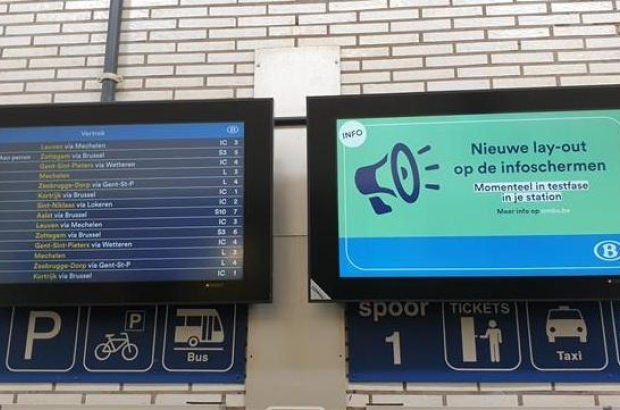- Daily & Weekly newsletters
- Buy & download The Bulletin
- Comment on our articles
SNCB records major profit in 2023 as passenger numbers bounce back
Belgium’s national railway operator SNCB has performed significantly better in 2023 than in 2022, its latest annual results have revealed.
The company made an operating profit of €142.2 million, more than three times more than the €39.6 million profit made in 2022.
This result can be explained by the SNCB’s significantly increased turnover for domestic and international travel, despite rising costs, particularly for energy, which was up 34% in 2023.
Passenger numbers increased by 7.6%. The SNCB, with 244.6 million commuters last year, is now back to 96% of the level recorded on workdays in 2019 before the Covid-19 crisis. Journeys made between home and school and leisure travel have returned to pre-Covid levels.
Annual season tickets for commuters remain 10% lower, however. The SNCB cites the rise of remote working as a reason for this decrease. With this in mind, the new "Flex" season ticket for people in the office two or three days a week has been a success.
The numbers of leisure travellers at weekends (almost 20% more than in 2019), during school holidays (8% more in July and August than in 2022) and in off-peak hours (10% more than in 2019) are also increasing.
Meanwhile, SNCB’s new energy-saving measures have led to a 2% fall in energy consumption over the past year.
All in all, the company invested €852.3 million in 2023, 10% more than in 2022, into improving its services. The funds have been used for buying and operating the new M7 double-decker trains, renewing and maintaining existing trains and continuing to implement the European Train Control System (ETCS).
The money has also been used for some €175 million of infrastructure renovations – including for stations, tracks, platforms (accessible for those with reduced mobility) and 2% more bicycle parking spaces in stations, some 126,777 in total.
The company also made headway in its digitalisation plans, accompanied by a €100 million investment, particularly in station information displays and in implementing the new SNCB Assist app for mobility-impaired individuals, used for example by people to get help at stations if needed.
The SNCB also said that it hired 1,600 new staff in 2023, mostly in operational roles, adding: “For the first time in 10 years, the number of recruitments exceeded the number of departures.”
The company said it was well on the way to meeting its 2032 target of 30% more passengers and 10% more trains compared to 2023 levels.
To support this increase, the SNCB will continue renewing its fleet; double the amount of "entirely accessible" stations to 176 as well as the number of cycle spaces in trains; and, increase by 30% the number of parking lots for bicycles.
The annual results also showed that Beignée station is the least frequented in the country. Located on the Charleroi-Central – Walcourt line, it is used, on average by some 10 passengers a day (compared to the 60,000 or so that pass through Brussels’ Gare du Nord daily).
However, this figure needs to be put into perspective, given that this stop only sees 12 trains at the most in the week – in the peak "rush hour" morning and early evening periods – and none at all at weekends and public holidays. This is a far cry from a few years ago, when trains would stop at Beignée every hour.
The SNCB said that 25 stations in Belgium receive less than 50 passengers a day. According to SNCB spokesperson Tom Guillaume, the reason for the reduced service included Beignée’s proximity to the much bigger station of Charleroi-Central and the village’s small density of population.




















Comments
What a wonderful world for the Belgian railways company: profits tripled. However, they will abolish the reduced ticket for seniors so that the price for a return ticket Brussels-Liège or Brussels to the seaside will double. So we will see more seniors citizens switch to cars because trains are too expensive. Bad for the climate! How can government allow this?